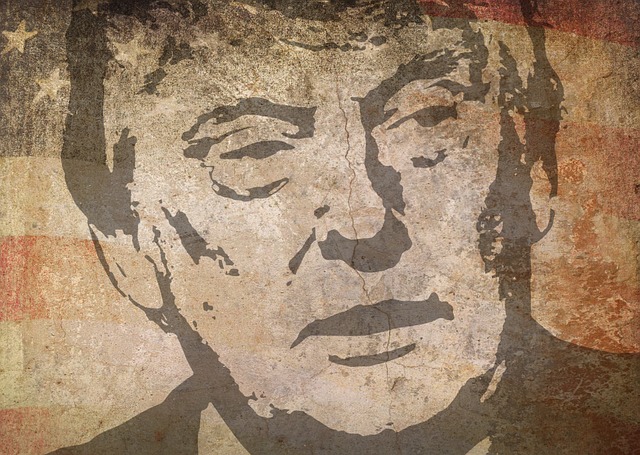By J.M. Phelps (American Thinker)
On April 25, oral arguments were delivered to the U.S. Supreme Court to rule on President Trump’s authority to restrict travel to the United States by nationals of certain countries who are not solely from Muslim-dominant countries. The executive order was quickly coined the “Muslim ban” or “travel ban” by mainstream media, implying to a large extent that his order exhibits racial or religious animus solely toward Muslims.
Creating confusion among travelers, sparking protests from the left, and initiating a number of lawsuits to block the so-called “ban,” the lawsuits were repeatedly upheld by the 9th Circuit of Appeals and the 4th Circuit Court on the basis of “unconstitutional” religious discrimination and varied interpretations and provisions in U.S. immigration law.
The power exhibited by these courts has left many conservatives scratching their heads in disbelief. President Trump has been clear on his motives. For example, in his National Security Strategy, he reveals he has chosen to “put the safety, interests, and well-being of our citizens first.” With this statement, he’s fulfilling a primary responsibility of our government: to protect American citizens from enemies foreign and domestic.
Earlier this year, the Department of Justice (DoJ) and the Department of Homeland Security (DHS) released a report on terrorism-related activity, specifically sharing data about the number of individuals convicted of international terrorism-related charges in U.S. federal courts. Within the report, Attorney General Jeff Sessions awakes us to “an indisputable sobering reality,” stating that “our immigration system has undermined our national security and public safety.” He goes on to say the data revealed in the report are “only the tip of the iceberg.”
Sessions states, “We currently have terrorism-related investigations against thousands of people in the United States, including hundreds of people who came here as refugees.” Between September 11, 2001 and December 31, 2016, the DOJ and DHS identify nearly 75 percent of the individuals convicted of international terrorism and terrorism-related offenses as foreign-born.
Phil Haney, founding member of DHS, shared a few thoughts about A.G. Sessions’s previous statements. “Not only will I echo what Attorney General Jeff Sessions had to say; I will also confirm it from my experience when I was active duty [with Customs and Border Patrol and the DHS], and I’ll also add the concept of sovereignty to the conversation. This is a direct assault on our sovereignty, our right to define our borders and protect our national security. A.G. Sessions is absolutely right about it. If anything, he is understating the severity of the problem.”
Haney believes that our immigration system has a number of problems that threaten our nation security. “There are multiple ways to show you the system is broken and dangerous people are crossing and will continue to cross the border into our country,” he contends. The DoJ and DHS report revealed that over 1,700 aliens were removed by U.S. Immigration and Customs Enforcement with concerns for national security between 2001 and 2016. The DHS cited over 2,500 encounters with individuals on the FBI’s terror watch list attempting to travel to the United States in 2017. In response to these incidences, Haney says, “This is why it’s incredibly important to protect our sovereignty and our national security by upholding President Trump’s so-called travel ban.”
Haney concludes, “We have to fix this. There are so many ways that our immigration system is broken. People literally come over the border without being checked. People come over the border with fraudulent documents. People come over the border, claiming asylum, but may not have legitimate claims. People come in on valid visas but overstay their visas. People come in on visa waiver from friendly countries, who also overstay, or they have two passports – one from their home country and often one from an E.U. country, for example. There’s also marriage fraud. All of that needs to be fixed.”
The Constitution gives the president the responsibility to enforce the laws Congress has set on immigration. In 1952, a provision also gives the president the authority to “suspend the entry of … any class of aliens … for such period as he shall deem necessary.” According to another provision in 1965, immigration visas shall not be “discriminated against … because of a person’s race, sex, nationality, place of birth or place of residence.”
Chris Woodward of OneNewsNow reports, “The Trump administration argues it is acting in the interest of national security; and while some of the nations on the travel policy have Muslim majority populations, North Korea and Venezuela are also on the list.” The court is expected to issue a decision in Trump v. Hawaii by late June and will declare whether the president has the lawful authority to suspend entry of aliens abroad and whether the Constitution’s prohibition of religious discrimination was violated by the executive order.
J.M. Phelps is a Christian activist and journalist based in the Southeastern U.S. He is also editor and publisher of the website Lantern of Liberty.
Originally published by the American Thinker on Thursday, May 17, 2018.
This column is printed with permission. Opinions expressed in columns published by Lantern of Liberty are the sole responsibility of the article’s author(s), or of the person(s) or organization(s) quoted therein, and do not necessarily represent those of the staff or management of, or advertisers who support Lantern of Liberty.






